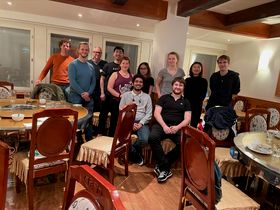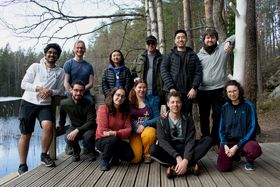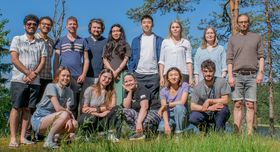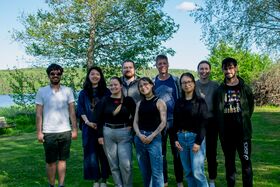Biochemistry
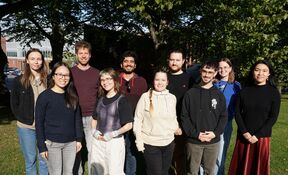
Our research areas:
- Biochemical CO2 valorization
- Metabolic engineering of archaea
- Anaerobic biochemistry
Research themes:
We utilize biotechnological procedures to convert CO2 to renewable fuels. We carry out research on a fundamental level via in vitro systems (enzymes), and we use metabolic engineering (in vivo) to construct new pathways for the conversion of CO2 to fuels.
Microbes and Enzymes:
We currently study the biochemistry and genetics of methanogens.
Methanogens are microbes with the ability to reduce CO2 to methane (biogas, a one-carbon fuel). The individual reduction steps are carried out at cofactors, such as H4MPT and coenzyme M.
One overall research goal is to extend this chemistry towards producing 2-4-carbon fuels (liquefied petroleum gas: ethane, propane or butane) that can be easily liquefied at room temperature. It serves the purpose of converting CO2 with renewable energy to a storable fuel.
And additional project involves extending the substrate scope of methanogens.
We also develop new tools to activate CO2 in vitro, in a collaborative project with Malin Bomberg (VTT) and Jan Deska (University of Helsinki), where we study acid-tolerant formate dehydrogenases.
Methodologies and Tools:
We perform genetic engineering with methanogens of the orders Methanosarcinales and Methanococcales. Due to their oxygen sensitivity, all manipulations are carried out in anaerobic chambers or incubators. Methanococcus maripaludis is utilized as a genetic work horse for the expression of archaeal proteins and for designing new metabolic pathways.
We conduct mechanistic studies with enzymes purified from Methanothermobacter marburgensis, a methanogen that grows at 65 °C to high cell densities, allowing to access large amounts of native enzymes and cofactors. This organism is currently the only source to obtain the enzyme Mcr in the active form, which is prerequisite to study its catalytic mechanism. Biochemistry is studied by a range of different methods, such as: anaerobic expression of enzymes, experiments with isolated cofactors, kinetic studies, measurement of equilibria, electrochemistry, synthesis of substrate analogues, isotope effects, NMR and EPR studies, DFT calculations.

Professor Silvan Scheller, head of the research groupWe are an interdisciplinary group of people who try to be game-changers.
Research group members:
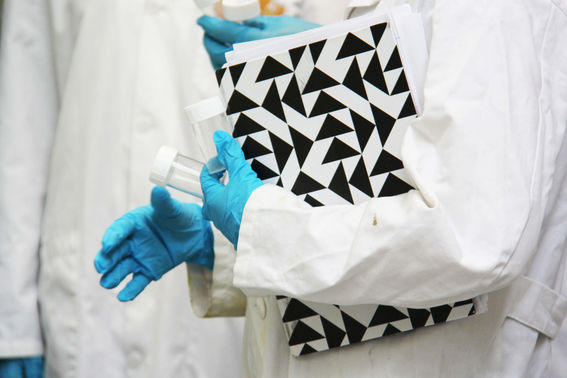
Join us!
If you are interested in joining the group as a PhD student or postdoc, please send your CV and a short description on why you are motivated to Prof. Silvan Scheller (firstname.lastname@aalto.fi).
Related news and events:
Access to sustainable energy – a global challenge
This session of Aalto Sustainability Talks discusses access to affordable and clean energy from a global perspective.

Curiosity is a pathway to science
Researchers are shaping the future. If you want to become a researcher, it is important to be curious and question everything, says Professor Silvan Scheller.


Selected publications:
- Structure of the ATP-driven methyl-coenzyme M reductase activation complex 2025 Nature, Ramírez-Amador, F., Paul, S., Kumar, A., Lorent, C., Keller, S., Bohn, S., Nguyen, T., Lometto, S., Vlegels, D., Kahnt, J., Deobald, D., Abendroth, F., Vázquez, O., Hochberg, G., Scheller, S., Stripp, S. T. & Schuller, J. M.
- Nature AND nurture: enabling formate-dependent growth in Methanosarcina acetivorans2025. FEBS Journal, Bao, J., Somvanshi, T., Tian, Y., Laird, M. G., Garcia, P. S., Schöne, C., Rother, M., Borrel, G. & Scheller, S.
- Thiol‐Disulfide Exchange Kinetics and Redox Potential of the Coenzyme M and Coenzyme B Heterodisulfide, an Electron Acceptor Coupled to Energy Conservation in Methanogenic Archaea. 2024. ChemBioChem, Maxime G Laird, Norman Adlung, Jari J Koivisto, Silvan Scheller. DOI: https://doi.org/10.1002/cbic.202300595
- Efficient CRISPR/Cas12a-based genome editing toolbox for metabolic engineering in Methanococcus maripaludis. 2022. ACS Synthetic Biology, Jichen Bao, Enrique de Dios Mateos, and Silvan Scheller. DOI: 10.1021/acssynbio.2c00137
- Deconstructing Methanosarcina acetivorans into an acetogenic archaeon. 2022. Proceedings of the National Academy of Sciences of the United States of America, Christian Schone, Anja Poehlein, Nico Jehmlich, Norman Adlung, Rolf Daniel, Martin von Bergen, Silvan Scheller, Michael Rother
- Artificial electron acceptors decouple archaeal methane oxidation from sulfate reduction. 2016. Science, Silvan Scheller, Hang Yu, Grayson L Chadwick, Shawn E McGlynn, Victoria J Orphan















